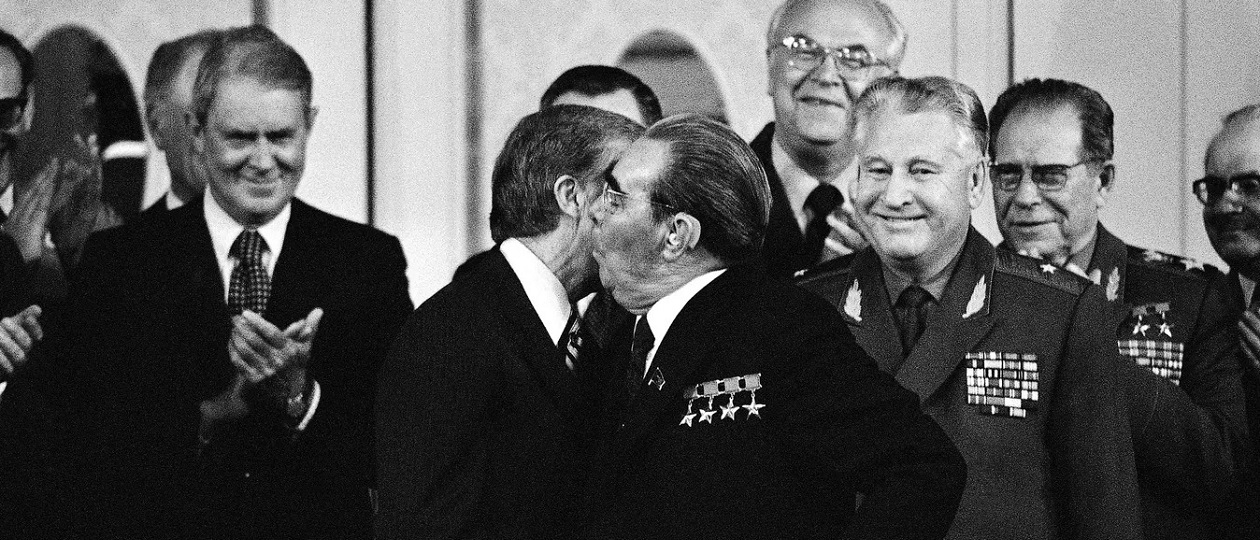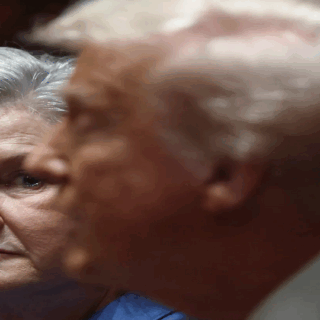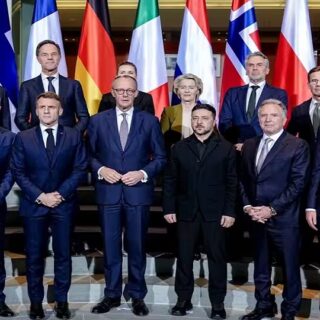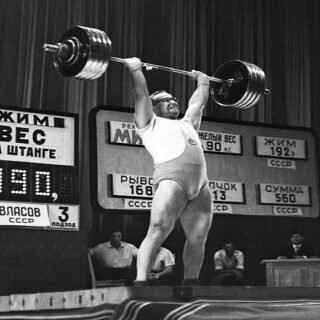
Back in 1983 USA-based press published a report claiming that the American Big Brother managed to eavesdrop on what Leonid Brezhnev would say using the supposedly eavesdropping-prone phone in his limousine.
The veracity of this piece of news was supported by quotes from US government sources.
This was followed by even more sensational publications on the same subject. 10 years earlier, when Brezhnev paid a state visit to USA and spent a couple of days at Camp David as President Nixon’s guest, American secret services managed to get extensive information about Soviet leader’s health by collecting and thoroughly studying his excrements.
Typically, nobody in USA was surprised or disgusted.
I was stationed in Washington as bureau chief of Izvestia at that time and in February of 1985 got a phone call from Petersburg, Virginia:
“Hi, Mister Palladin! I am John Blair, professor of history from Richard Bland college. In order to give our students and professors a wider and better perspective of outside world we arrange regular visits of foreign dignitaries to our campus.
Soon we will welcome ambassadors from Guatemala and New Zealand, as well as a daughter of former Egyptian President Anwar Sadat who was assassinated four years ago. And Howard Baker, US Senate Republican leader, promised to join them later.
We’d like to see you as our guest speaker as well on March 20th. We have never had any Soviet lecturer before and I’ve seen you in TV talk shows on many occasions.”
“Thank you, Mister Blair! I’ll be honored. What would you like me to dwelve on?”
“Your personal point of view of current relationship between our two countries. Next week I’ll come to Washington with a couple of colleagues and we could have lunch with you where we’ll discuss it in greater details, OK?”
A few days later we met at a restaurant near the Capitol Hill. John Blair turned out to be a pleasant grey-haired gentleman some 15 years older than myself.
The college where he had been teaching for 20 plus years and for 7 years in a row arranged lectures by guest speakers, was named after an American Founding Father, planter, lawyer and politician who was a cousin and early mentor of Thomas Jefferson.
— We in USA barely know anything about other countries and peoples, — admitted Jonn Blair at lunch with me, adding: — Many Americans just don’t care about it.
His companions, two men of the same age and breed, nodded in a demonstration of solidarity.
Blair continued:
— I am concerned by increased international tensions after a brief period of détente. The arms race is growing at unprecedented rate, military conflicts take place here and there, and disarmament talks between USA and USSR were disrupted over a year ago. Ronald Reagan was reelected recently and one can only hope that he does not want to be remembered as a president who brought our country to the brink of war. Thus, your lecture at our college will be of special interest.
The same could be said about my own feelings. I started working in Washington in August of 1981, and the way bilateral relations deteriorated by the time I met with John Blair made me recall a popular Russian song with a line about air smelling like thunderstorm. I did my best to understand American mentality.
For that reason I never refused to participate in TV and radio talk shows or to give public lectures, using such opportunities to share my own view of bilateral relations, too.
Early in the morning of March 20th I started driving my Chevrolet Caprice and in some 3 hours arrived in Petersburg. The American namesake of Russia’s Petersbrug turned out to be a rather small city inhabited by less than 30 thousand people.
It was founded 340 years earlier and the most memorable event in its history was the 292 days long siege during Civil War when General Grant, commander of a Northerners army, tried to take Petersburg over. Next morning I mentioned this fact in my speech at the local Rotary Club. (John Blair used my visit to full capacity and I did not mind).
By that time I knew pretty well the American habit of starting any speech with a joke and said:
— Thank you very much, ladies and gentleman, for excellent food and wine! Special thanks for your singing the Red Rose song while welcoming a Red journalist.
Local Rotary Club members broke in laughter and my speech was well received by them overall. I used that opportunity to remind them of the 900 days long blockade of our own city that used to be called Petersburg, too, and carries that name now.
I also mentioned my recent phone interview with William Robertson, an American veteran of WWII who had just come back home from a trip to the USSR where he met with a Red Army veteran Alexander Silvashko with whom he had shaken hands in April of 1945 at the Elbe River, near Torgau in Germany.
At that time, I said in conclusion, we were comrades in arms, while «now every single day 5 new nuclear warheads are added to the already enormous nuclear arsenals of our two countries.
Thus, once again we are facing the same enemy but now it is the threat of a new world war that most likely will become the last war in the world history. No effort should be spared to avoid that the two Petersburgs, yours and ours, experience once again what they suffered before but at a much larger scale».
Later that day I used the same argument in my lecture at Richard Bland college. It was standing room only in its main hall, with quite a few people sitting on steps.
Once again I started by joking. This time, however, I used black humor and congratulated everybody, including myself, on the fact that we were all still alive in spite of the growing threat of a nuclear war.
I also said that the famous saying of ancient Romans, Per aspera ad astra, was replaced by the Star Wars concept while the emphasis was being made on developing brawn rather than brain.
Soviet people, I added, with our centuries long history of foreign invasions by various countries know all too well what such policies lead to. That’s why the Soviet leaders were so interested in peaceful coexistence whoever came to power in the USSR. (I stressed that point because of the fact that only 9 days before my visit to Richard Bland college Gorbachev had assumed power in Moscow which meant that the USSR got a new leader for the third time in less than two and a half years).
As could be easily anticipated, this is what generated the greatest majority of questions from the audience. Americans are used to perceive its own government’s behavior at international arena as impeccable, and they do not like critical remarks by foreigners.
As the reporter of the local Times Dispatch newspaper noted next morning, there were quite a few in the hall who felt enraged by my remarks. One of them, a man of my own age, raised his hand and asked mockingly:
— How can we trust you when your leaders conceal the state of their health from everybody else, including their own compatriots? As a result Vice President George Bush never sleeps now expecting an urgent call to go to Moscow once again to attend the funeral of yet another Soviet leader…
He generated some laughs and I just shrugged my shoulders:
— What makes you believe that all human beings should obey your way of thinking and living? We have our own history, our own traditions and habits. For us, medical secrecy is not a formal phrase. Our politicians are not accustomed to make public announcements every time a tumor on their nose is found by doctors. (This is what President Reagan did on several occasions).
— Furthermore, — I added alluding to the above mentioned incident with Brezhnev when he paid a state visit to USA in 1973, — nobody in our country would even think of digging into excrements of a foreign leader when we welcome him or her in Moscow…
The face of the guy who provoked my answer went red, his eyes filled with rage but he sat back on his seat without uttering anything.





